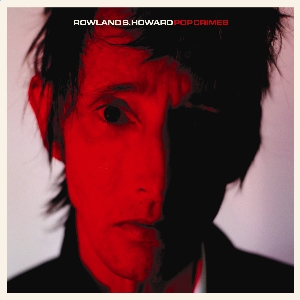The untimely passing last year of Rowland S. Howard increases the temptation to read more into his unintentional swansong than is strictly necessary. Yet the former Birthday Party guitarist is far from an isolated case when it comes to this kind of analysis. For good or for ill, Joy Division’s Closer is still poured over for perceived hints of the terminal action that Ian Curtis was to fulfil and it’s a similar fate that befell Nirvana’s In Utero. Granted, the endgame perpetrated by both the young Mancunian and Kurt Cobain were self-inflicted, but the illness that robbed the Australian guitarist of his life was the culmination of a long, slow battle.
Indeed, those predisposed to lurid speculation will find much to debate over with Howard’s threatening cover of Talk Talk’s ‘Life’s What You Make It’ or naming a song ‘Shut Me Down’ but this is to do this most idiosyncratic of guitarists a grave disservice. As The Birthday Party’s lead guitarist, Howard attacked the blues with dissonant cheese wire strings and a clarity born of chaotic origins to create a spectral, eldritch noise that was at once his own even as it picked up where The Stooges’ Funhouse left off.
Apples rarely fall far from trees and in the same way that Nick Cave, Mick Harvey, The Triffids and late period Go Betweens embraced a more panoramic vernacular with the drawling twang of Lee Hazelwood to their music, so Howard too evokes visions of windswept vistas, rolling tumbleweed and a burning sun beating down on upon a parched earth.
As is evidenced from the title track of this of this frequently mesmerising album, Howard signature sound remained his until the very end. Wringing his guitar neck for all that it’s worth, this could easily be the sound of some kind of infernal film noir as the echoes and bends cast long shadows among the trails of curling cigarette smoke caught in the dim afterhours lighting. But, as displayed on ‘Wayward Man’, Howard is just as interested in colouring in the background as he is leading from the front and it’s a track that benefits as much from what Howard doesn’t do as much as what he does.
As a vocalist, Howard’s world-weariness is palpable throughout and his laconic delivery comes from the same angle as Tom Waits’ bar room growl; he’s seen and done things – some of which should probably never be mentioned in polite company. It’s this wisdom of experience and peering over the precipice that makes Rowland S. Howard such an endearing vocal and musical narrator on this haunting and often gripping collection of songs.


